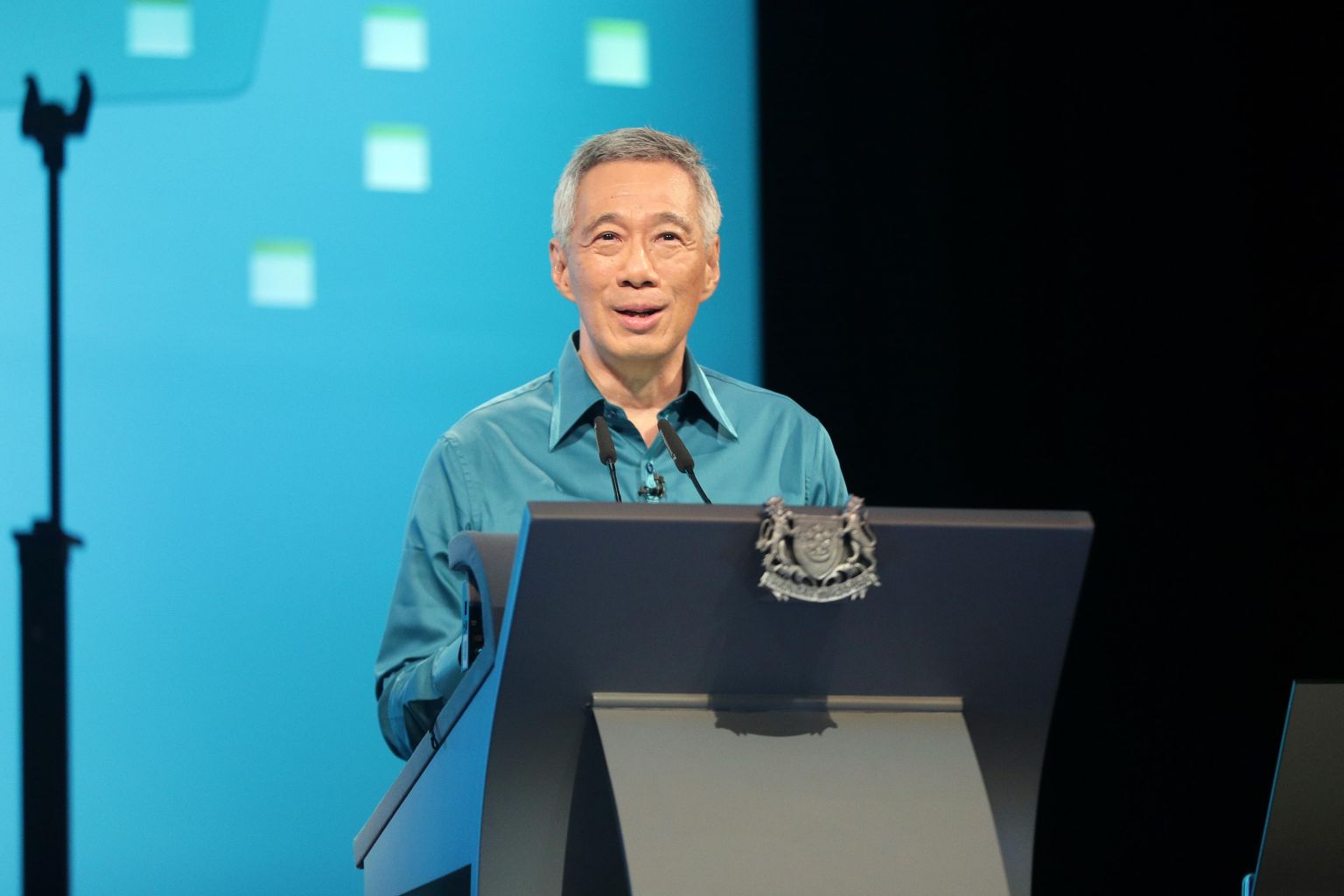PM explains why S'poreans feel cost-of-living pressures
He cites four reasons for that despite people having better lives now than their forefathers
Sign up now: Get ST's newsletters delivered to your inbox

Prime Minister Lee Hsien Loong gave four reasons as to why Singaporeans feel pressured by the cost of living, and pledged that the Government will do its part to ease their concerns.
ST PHOTO: KELVIN CHNG
Singaporeans today, compared to their forefathers, have better lives, with access to world-class education, affordable and high-quality healthcare, and a high rate of home ownership, said Prime Minister Lee Hsien Loong yesterday.
But they still feel pressures from the cost of living, he noted in his National Day Rally speech in Mandarin which focused largely on the issue.
Acknowledging their worries, he said: "They sense that they have to spend more, that their earnings never seem quite enough."
He gave four reasons Singaporeans feel this way, and pledged that the Government will do its part to ease their concerns.
But people need to do their part, too, he said, urging them to adopt some lifestyle changes to ease the squeeze on their wallets.
The reasons for feeling financially pressured vary, he noted.
Young families, for example, pay close attention to the costs of housing and pre-school education as they are buying their first property and planning to have children.

The sandwiched generation looking after both their children and ageing parents are concerned with healthcare and education costs.
A third reason is that the cost of living has risen on account of changing lifestyles.
Pointing to the quality of life improving with economic growth and technological progress, Mr Lee said people eat out more and vacations have become more common.
Things that were once considered luxury items or did not even exist, such as air-conditioners and mobile phones, have also become daily necessities, he added. "Our standards of living have gone up. This is a positive development, because it means our lives have improved. However, to sustain this higher quality of life, people are spending more than before, and this can put pressure on households," he said.
The fourth reason is inflation, which has led to price increases.
Mr Lee highlighted four groups who may feel the pinch more: those whose wages have stagnated amid an overall rise in wages, those who fear losing their jobs as the economy transforms, those who are already jobless, and retirees who no longer have income and are living off their savings. "When prices increase, they feel as if 'their wallets have shrunk'," he said.
Delving specifically into the rise in utilities prices, Mr Lee said while the Government has tried to keep inflation low, "we cannot completely prevent prices from increasing".
This is so especially for electricity tariffs, since Singapore generates electricity with imported natural gas, which is priced based on global oil prices. To fix electricity tariffs would thus require costly subsidies that are unsustainable, and will also end up benefiting the wealthy more since they consume more electricity.
Instead, the most effective way to help low-and middle-income households with utilities bills is via U-Save rebates for families in Housing Board flats, he added. "I hope people will understand that we have adopted the best approach to lessen the burden of Singaporeans."
While cost of living is a perennial concern, the issue has gained traction recently with increases in water and electricity prices kicking in.
Mr Lee assured Singaporeans the Government looks closely at the three major expenditure items - housing, healthcare and education - that people worry most about.
"We will make sure (they) are affordable, so that Singaporeans do not have to worry about them."
He also urged Singaporeans to do their part by making small changes - "save water, save electricity, and at the same time, shop around for the best prices, and be a smart consumer".
Specifically, he cited mobile phones, infant milk formula and hawker centres to give tips on how people can save on phone bills, bringing up their children and food.
He urged people to watch their data usage on their mobile phones, advised parents that expensive formula milk is not always the best, and pledged to build more hawker centres with affordable food options that cost $3 or less. The Government will build 13 more hawker centres in the coming years.
"While the Government will do its part to alleviate people's cost of living concerns, each of us also has a responsibility to 'look after our own wallets'," he said.


